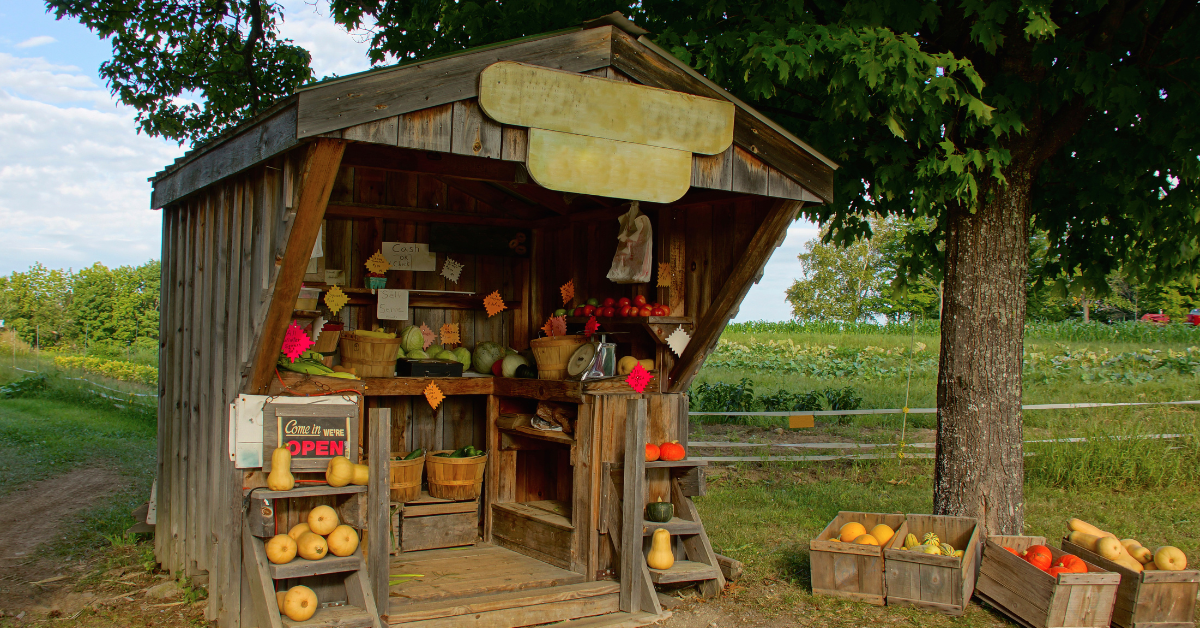
March 31, 2023
In recent years, more and more Vermont farms have started welcoming visitors onsite as a way to diversify revenue and engage with their customers and community. However, it can be daunting to navigate the regulations, permits, and licenses required to incorporate these agritourism experiences into your business. With Act 143 of 2018, the Vermont Legislature attempted to lessen this burden and expand opportunities for farmers incorporate supplemental business ventures by creating a statewide municipal land use category called Accessory On-Farm Business (AOFB). This law made it so a municipality cannot prohibit an AOFB as long as they meet zoning requirements such as operating hours, building setbacks, etc.
AOFB is defined as activity on, or accessory to, a farm. To be considered a "farm" under this designation, one must be regulated by the Agency of Agriculture, Food & Markets under the Required Agricultural Practices (RAP).
There are two categories of AOFB’s:
-
The storage, preparation, processing, and sale of qualifying products. The definition of qualifying products is nuanced, but essentially means agricultural products made on a farm. Some municipalities will allow the sale of non-qualifying products as well, but some will not. For example, some will allow you to sell farm “merch” along with produce in a farmstand, but some will no longer consider the farmstand an AOFB with the farm merch addition. At least 50% of total annual gross sales, in dollars, from the AOFB must be generated through the sale of products produced on the farm. In other words, the intent is to primarily sell your own products, but you are also allowed to sell products from your neighborhood farms as well.
-
Educational, recreational, or social events that feature agricultural practices, qualifying products, or both. This can include farm tours, farm stays, tastings and meals featuring qualifying products, or classes or exhibits in the preparation, processing, or harvesting of qualifying products.
Local municipalities are responsible for determining whether the proposed business meets the definition of AOFB, and some may be more permissive than the law states. If designated as an AOFB, municipal land use regulation is limited to a site plan review and application of performance standards, but not more intensive zoning requirements.
The law was written to give towns authority to regulate, but this has caused some discrepancy and confusion across the state. During the 2022 legislative session, the Legislature directed the Natural Resources Board (NRB) to consult with the Agency of Agriculture, Food and Markets (VAAFM), the Vermont Planners Association, the regional planning commissions, and other interested stakeholders and issue a report with recommendations on how Act 250 jurisdiction should apply to agricultural businesses, including accessory on-farm businesses.
NRB and VAAFM collected stakeholder feedback through a survey and four meetings, which identified the following three proposals for clarifying some of the concerns around the treatment of AOFB’s and different options for how to address each.
-
Clarify definitions of “principally produced,” “qualifying products,” “farming” and “accessory on-farm businesses.”
-
Align the divergent standards in Title 24, Title 10, and the Required Agricultural Practices, which focus on either “total annual sales” of “qualifying products” or the “weight or volume” of agricultural products to determine whether they are “principally produced.”
-
Allow for AOFBs to sell more qualifying products “obtained from another farm.”
-
Expand the definition of “qualifying products.”
-
Increase VAAFM educational outreach.
-
-
More precisely define what types of businesses qualify as AOFBs.
-
Distinguish between “educational” and “recreational or social events.”
-
Specify whether restaurants and/or wedding venues constitute accessory on-farm businesses, and/or establish appropriate limitations.
-
Define AOFBs on a use basis.
-
-
Clarify intersection of AOFBs and Act 250
-
Maintain the status quo under Title 10 that AOFBs are not exempt from Act 250 jurisdiction as a category. AOFB businesses would then remain potentially subject to differing municipal, Act 250, and AAFM land-use regulations.
-
Exempt AOFBs from Act 250 under defined circumstances.
-
Exempt all AOFBs from Act 250 jurisdiction.
-
Read the full report for more details about the stakeholder feedback process and each proposal.
The legislature may take up these proposals in current and/or future sessions. In the meantime, the agency will continue education and outreach with all stakeholders, farmers, and town zoning officials to understand the law currently and as it changes. We are happy to help you understand the law and to facilitate conversations with zoning administrators. However, it’s important to note that we do not regulate or make determinations about AOFBs.
If you have questions or need support around AOFB, please contact Julia Scheier at Julia.Scheier@Vermont.gov.
Disclaimer: This blog post is meant to be educational and inform you about Act 143 and the AOFB Report and does not constitute legal advice.
Thanks for reading the Marketing and Agritourism Blog! I’m your host, Kristen Brassard, Marketing & Agritourism Specialist at the Vermont Agency of Agriculture, Food & Markets. Stay tuned every other week for tips on marketing and incorporating agritourism practices on your farm and be sure to sign up for our Agriculture Development Newsletter so you never miss a post!

